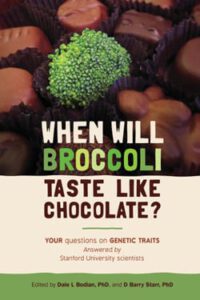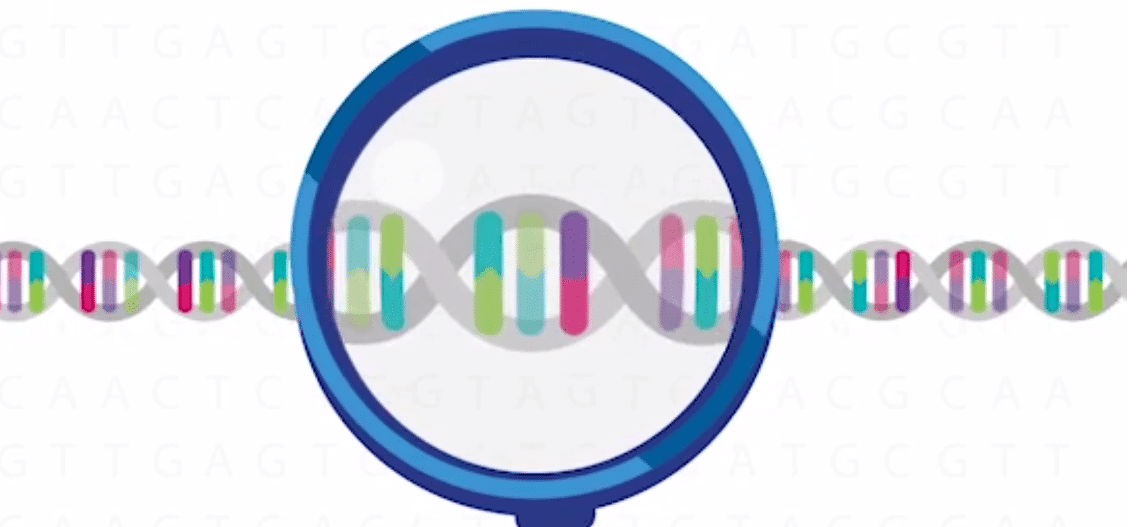
Ever since my kids were wee tykes in diapers, I’ve gone through the same bedtime routine of reading them a story. We went from picture books to the simple joys of Seuss, to following the wizardly adventures of Harry, Hermione, and Ron.
Our nightly page-turners don’t usually delve into the world of science or genetics but that all changed recently thanks to the book, “When Will Broccoli Taste Like Chocolate?”
Ask a Geneticist
Sent along by some scientists at San Jose’s Tech Museum, the book is a great compilation of questions submitted by people to the website “Ask a Geneticist” and answered by Stanford University scientists. The website is part of a hands-on exhibit at the Tech Museum. The questions – from both kids and adults – are sometimes cheeky, sometimes straight, and always interesting. The title comes from one of those questions, from an adult who likes all the good stuff that comes with eating broccoli, just not the taste.
I brought the book home to look at how someone smarter than me talks to people about the complicated world of genetics. So the book was meant for me, but then my son picked it up.
It suddenly became our reading material for the night when my son randomly turned the page to “What would it take to develop a superpower?”
Super Strength
This is a critical question for young boys everywhere and it has been the topic of several conversations with my son. He favors super strength, understanding flight just isn’t possible. For my daughter, who is two years older and a little more sophisticated, it was the the section on eye color that drew her in. The Tech has also created a great tool to calculate the probability of blue, or green, or brown eyes.
The answers in the book offer a chance to draw in not just kids, but anybody interested in the science. In the case of superpowers, the book explores the genetics behind strength and intelligence, as well as the peculiar ability to be oblivious to pain. They illustrate the answers with examples such as a family in Pakistan that can’t feel pain. This family has a genetic mutation that interrupts the the process by which nerves to sense pain. Turns out it’s not such a super superpower, as my son learned.
Learning
23andMe does a pretty good job of making the journey into your DNA both fun and fascinating, but there are always more questions to be answered. “When Will Broccoli Taste Like Chocolate?” gives a broad sampling of those queries – some big, some small, some silly and some serious – we all have around this topic. The book, as well as the “Ask a Geneticist” website, offers a very approachable way for people to explore genetics.
And what about making broccoli taste like chocolate?
My kids learned it’s not as easy as putting cocoa and broccoli plants alone in a room together. Genetics is complicated, and genetically modifying foods can still be controversial and expensive. At least for my kids they’ll continue to hold their noses when eating their broccoli, while the book is making the rounds on both their nightstands for their own exploration into science.

